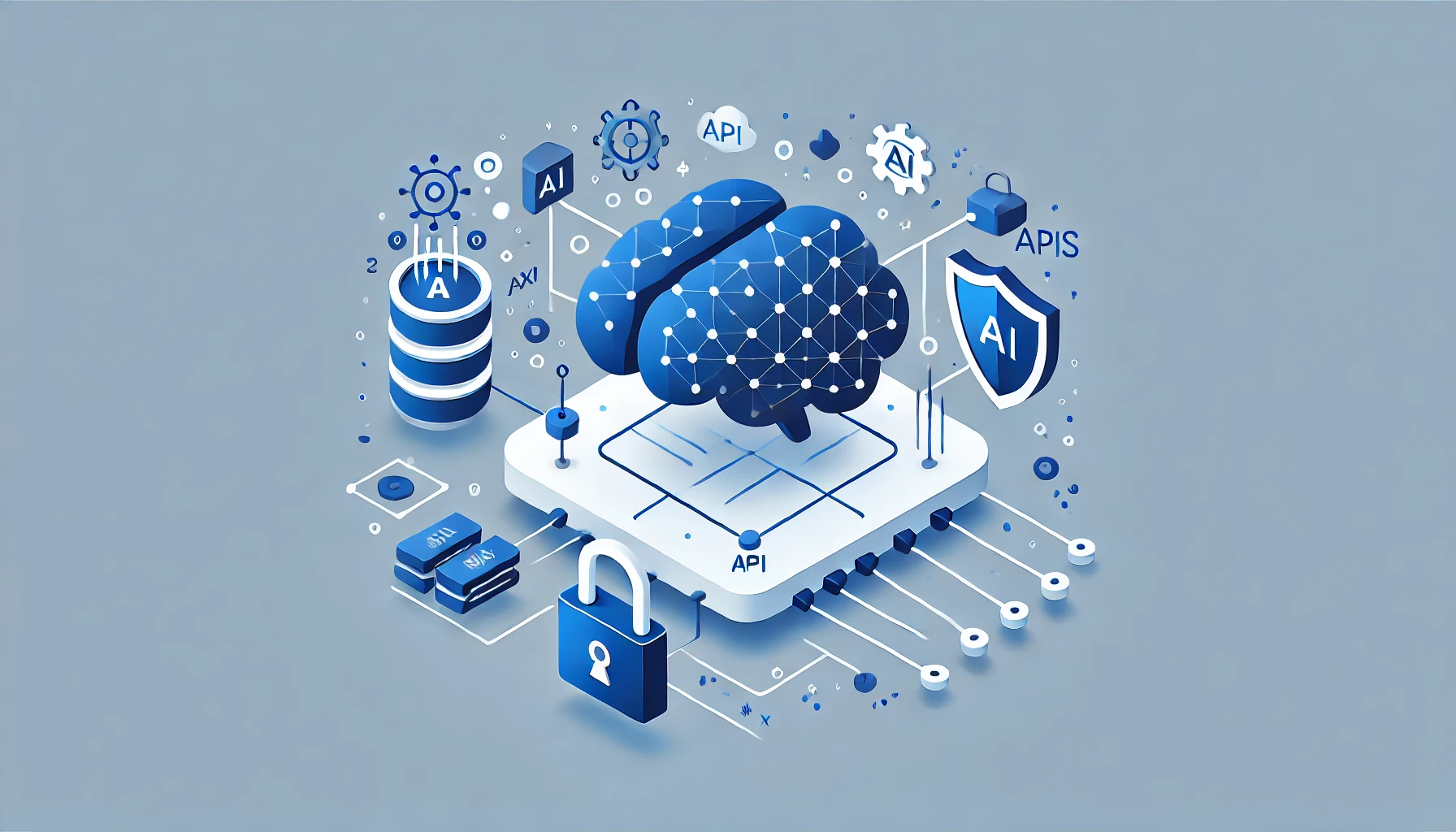
Leveraging AI to Secure Enterprise APIs
Executive summary
APIs are crucial for modern enterprises, but their growing use also presents significant security challenges. Traditional security measures often fail to keep up with sophisticated attacks, making AI an essential tool for protecting APIs. AI enables real-time anomaly detection, automates vulnerability identification, enhances adaptive authentication, and improves post-attack analysis, offering a scalable and proactive approach to API security. As API threats evolve, AI remains a critical defense in safeguarding enterprise data and operations.
The Growing Need for API Security in Modern Enterprises
In today’s digital landscape, APIs serve as the backbone of enterprise-level applications, enabling seamless integration and communication between various services, platforms, and devices. As organizations increasingly rely on APIs to fuel their operations, security has become a major concern. Traditional methods of securing APIs often fall short, especially as cyber threats become more sophisticated. This is where artificial intelligence (AI) steps in, offering advanced solutions to secure enterprise APIs in ways that were previously unimaginable.
AI’s Role in Real-Time Anomaly Detection
One of the most compelling advantages of AI in API security is its ability to identify and respond to anomalies in real time. APIs handle vast amounts of data across multiple systems, creating an extensive attack surface that is difficult to monitor with conventional rule-based systems. Attackers frequently disguise malicious traffic as legitimate requests, making it difficult to distinguish between the two. AI models, particularly machine learning algorithms, are designed to learn from patterns of normal API traffic and detect deviations that could indicate an attack. This dynamic adaptability allows enterprises to detect zero-day vulnerabilities—those previously unknown to security professionals—before they can be exploited.
Preventing API Vulnerabilities Early in the Development Lifecycle
Moreover, AI can help secure APIs by identifying vulnerabilities during the development lifecycle, long before they’re exposed in production environments. This capability is particularly important for API developers who often overlook security in favor of rapid deployment. AI-driven security tools can scan API code for vulnerabilities, such as improper authentication mechanisms or insecure data transmission methods, and suggest remediation steps in real time. For instance, an AI tool might detect that sensitive data, like customer credentials, is being transmitted without proper encryption and can automatically recommend or even implement end-to-end encryption (E2E) protocols. This level of automated intervention dramatically reduces the risk of human error—a frequent contributor to API breaches.
AI-Enhanced Authentication and Rate Limiting for API Protection
AI’s role in securing APIs extends beyond anomaly detection and vulnerability identification. It can also enhance the authentication and authorization mechanisms that protect APIs from unauthorized access. One innovative application of AI in this area is adaptive authentication, which adjusts security protocols based on the risk level associated with each request. If a user accesses an API endpoint from a known device at a familiar time, the AI system might allow access with minimal friction. However, if the user attempts to access the same endpoint from an unusual location, AI can dynamically impose stricter security measures, such as multi-factor authentication (MFA). This intelligent, context-aware security ensures that access controls are neither too lenient nor unnecessarily rigid, balancing user experience with security.
AI-Powered Post-Attack Forensics and Adaptive Security Models
In addition to real-time security measures, AI can also be used for post-attack analysis. When breaches occur, AI-powered forensic tools sift through the vast amounts of data to pinpoint the root cause and map out the attack vectors. This rapid analysis accelerates incident response times, allowing security teams to patch vulnerabilities before they can be exploited again. For example, after detecting an API breach, an AI system could highlight patterns in the attacker’s methods, like whether they exploited a particular parameter in API calls, and recommend specific security policies to prevent similar incidents in the future.
Ultimately, AI transforms how enterprises secure their APIs by making protection more intelligent, adaptive, and scalable. As API threats evolve, so too must the defenses designed to mitigate them. By leveraging AI, companies can move beyond traditional, static security models and adopt a more proactive approach—one that identifies risks before they become threats, adapts to new attack methods in real time, and ensures that API security measures align with the complex needs of modern enterprises. As APIs continue to expand in scope and importance, AI will undoubtedly remain at the forefront of securing them in a rapidly changing cybersecurity landscape.
How Codesealer Helps
Codesealer provides the ultimate defense against API threats by using AI to identify and mitigate attacks before they happen. By securing APIs with advanced encryption, Codesealer prevents attackers from exploiting vulnerabilities or gathering sensitive data through reconnaissance. Our solution intelligently hides payload structures and API responses, ensuring that your API endpoints remain invisible to malicious actors.
Get in touch with us today to discover how Codesealer can fortify your business with proactive, AI-powered security. Let us help you stay ahead of evolving threats and protect your critical assets.
